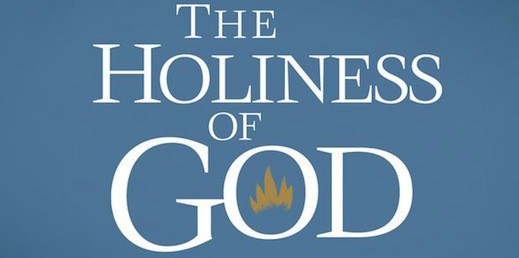If I were to tell someone to read just a single chapter of “The Holiness of God” I would probably recommend chapter 6, “Holy Justice.” More than any other, I think, this chapter displays the holiness of God using the testimony of Scripture. In this chapter Sproul looks to the Word and draws from it what God wants us to know about his holy justice.
Summary
I think I can best tell the story of this week’s chapter through a series of quotes. First, though, let me say that this is the chapter in which Dr. Sproul discusses Nadab and Abihu and then Uzzah–biblical characters who were struck down by God for not taking his holiness seriously. Sproul shows that these are not cases of God’s arbitrary nature or quick temper, but cases of God defending his own holiness. These are times in which God shows his holy justice.
God’s justice is never divorced from His righteousness. He never condemns the innocent. He never clears the guilty. He never punishes with undo severity. He never fails to reward righteousness. His justice is perfect justice.
…
We have a saying that “justice delayed is justice denied.” Not always. In the case of creation and mankind’s fall, the full measure of justice was delayed so grace would have time to work. Here the delay of justice was not the denial of justice but the establishing of mercy and grace.
…
Sin is cosmic treason. Sin is treason against a perfectly pure Sovereign. It is an act of supreme ingratitude toward the One to whom we owe everything, to the One who has given us life itself. Have you ever considered the deeper implications of the slightest sin, of the most minute peccadillo? What are we saying to our Creator when we disobey Him at the slightest point? We are saying no to the righteousness of God. We are saying, “God, Your law is not good. My judgement is better than Yours. Your authority does not apply to me. I am above and beyond Your jurisdiction. I have the right to do what I want to do, not what You command me to do.”
The slightest sin is an act of defiance against cosmic authority. It is a revolutionary act, a rebellious act in which we are setting ourselves in opposition to the One to whom we owe everything. It is an insult to His holiness. We become false witnesses to God. When we sin as the image bearers of God, we are saying to the whole creation, to all of nature under our dominion, to the birds of the air and the beasts of the field: “This is how God is, This is how your Creator behaves. Look in this mirror; look at us and you will see the character of the Almighty.” We say to the world, “God is covetous; God is ruthless; God is bitter; God is a murderer, a thief, a slanderer, an adulterer. God is all of these things that we are doing.”
…
The most violent expression of God’s wrath and justice is seen in the Cross. If ever a person had room to complain of injustice, it was Jesus. He was the only innocent man ever to be punished by God. If we stagger at the wrath of God, let us stagger at the Cross. Here is where our astonishment should be focused. If we have cause for moral outrage, let it be directed at Golgotha.
…
The Cross was at once the most horrible and the most beautiful example of God’s wrath. It was the most just and the most gracious act in history. God would have been more than unjust, He would have been diabolical to punish Jesus if Jesus had not first willingly taken on Himself the sins of the world. Once Christ had done that, once he volunteered to be the Lamb of God, laden with our sin, then He became the most grotesque and vile thing on this plant. With the concentrated load of sin He carried, He became utterly repugnant to the Father. God poured out His wrath on this obscene thing. God made Christ accursed for the sin He bore. Herein was God’s holy justice perfectly manifest. Yet it was done for us. He took what justice demanded from us.
I could go on and on. I think I highlighted about half of this chapter. I tell you, I just could not read this chapter without being in awe of God’s holiness. And as I see God’s holiness, I am both terrified by it and drawn to it; it is at once terrifying and desirable.
Next Week
For next Thursday please read chapter 7, “War and Peace with a Holy God.”
Your Turn
The purpose of this program is to read these classic books together. This means that it’s now your turn to offer your thoughts or your questions on this week’s reading. You can do so by leaving a comment here or by posting a link to your own site if you left a comment there. Of course there is no need to say anything. Just read and enjoy if that’s more your style.











